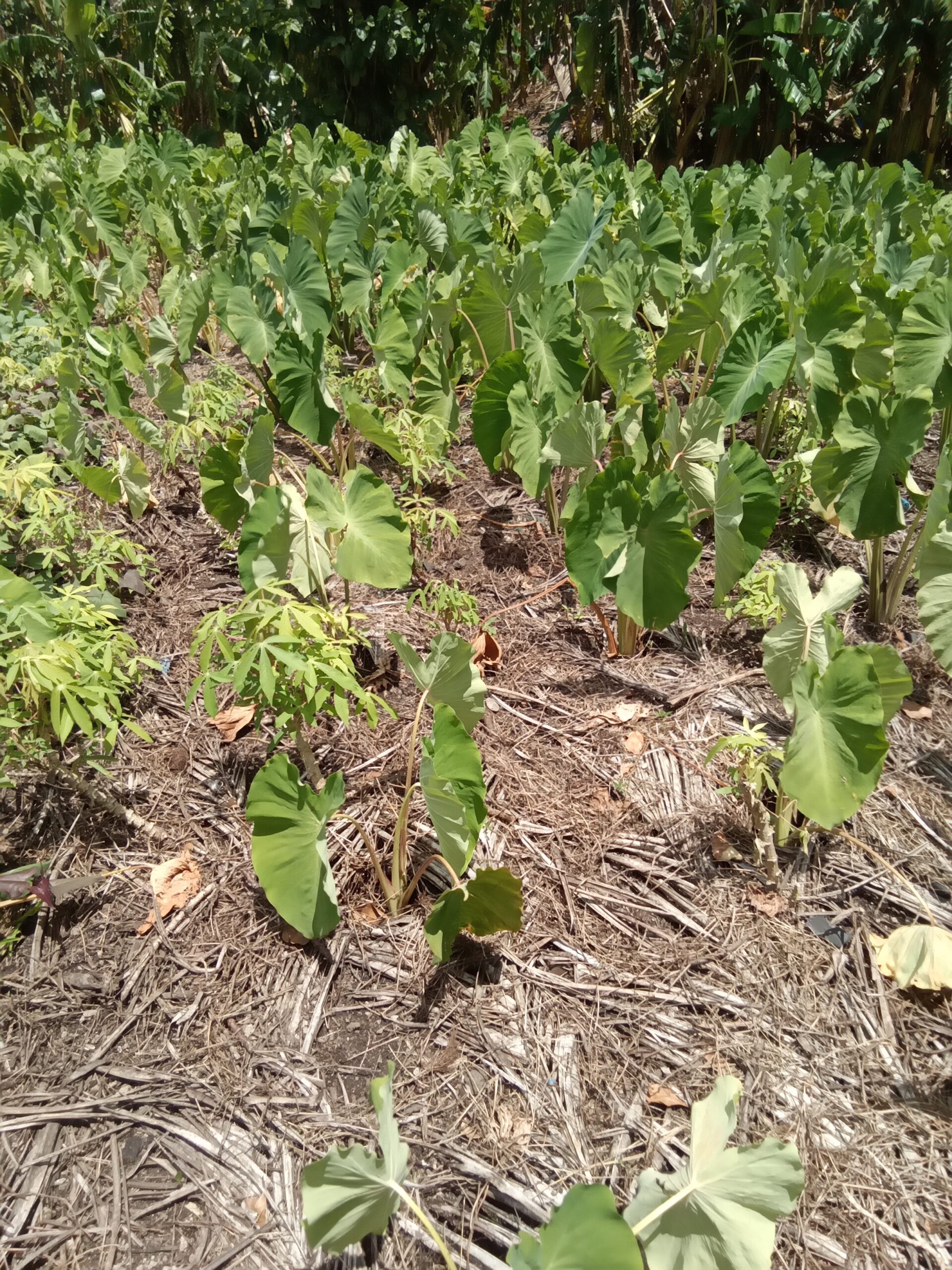

Assessment reveals that traditional farming methods provides resilience on food security for Anuta Islanders
Assessment of the damages caused by the recent two tropical cyclones that of Judy and Kevin during the National Disaster Council (NDC) led multi-sectoral deployment to Tikopia and Anuta has revealed that food gardens on Anuta island are located mostly on hilltops or steep slopes due to the topography of the islands which is mostly rocks, small patches of soils with limited flat land unsuitable for farming.
Given these natural limitations the people of Anuta have employed several methods of gardening techniques which according to the assessment has proven to be very effective against severe weather conditions such as the recent tropical cyclones.

Cassava tubers rotting due water logged soil and intense heat from the sun.

Taro plants starting to wilt because water logged soil
The farming methods include terracing on steep slopes or hilltops to reduce soil erosion and land slide and mulching to enrich soil nutrients and reduce water evaporation which is important for plant growth. Trimming of cassava stock is also employed to reduce the risk the crop being uprooted during strong winds and the overdue tubers preserved for traditional pudding (Masi)
Added to that the coping strategy of having several families owning gardens on a communal basis also meant that food can be shared amongst families during times of disasters. The assessment team noted that these strategies have increased their resilience as far as food security is concerned.
Despite these positives, the team also noted that there still crops on hill tops that are exposed to water log because the soil is so compact that it reduced the absorption of water into the soil. This resulted in cassava tubers and taro combs getting rot under intense heat from the sun.
To respond to the situation, the Temotu Province Agriculture sector has provided quick growing vegetable seeds and gardening tool sets to 8 communities in Tikopia and 2 communities on Anuta. The seeds includes water melon, long egg pant, sweet corn, cucumber and asparagus bean green arrow whilst each of the tool sets includes 10 knives, 8 fork and 6 spades.
An assessment report with key findings and recommendations is currently being compiled for the National Disaster Operations Committee (N-DOC) consideration on the next step.
-NDMO Press